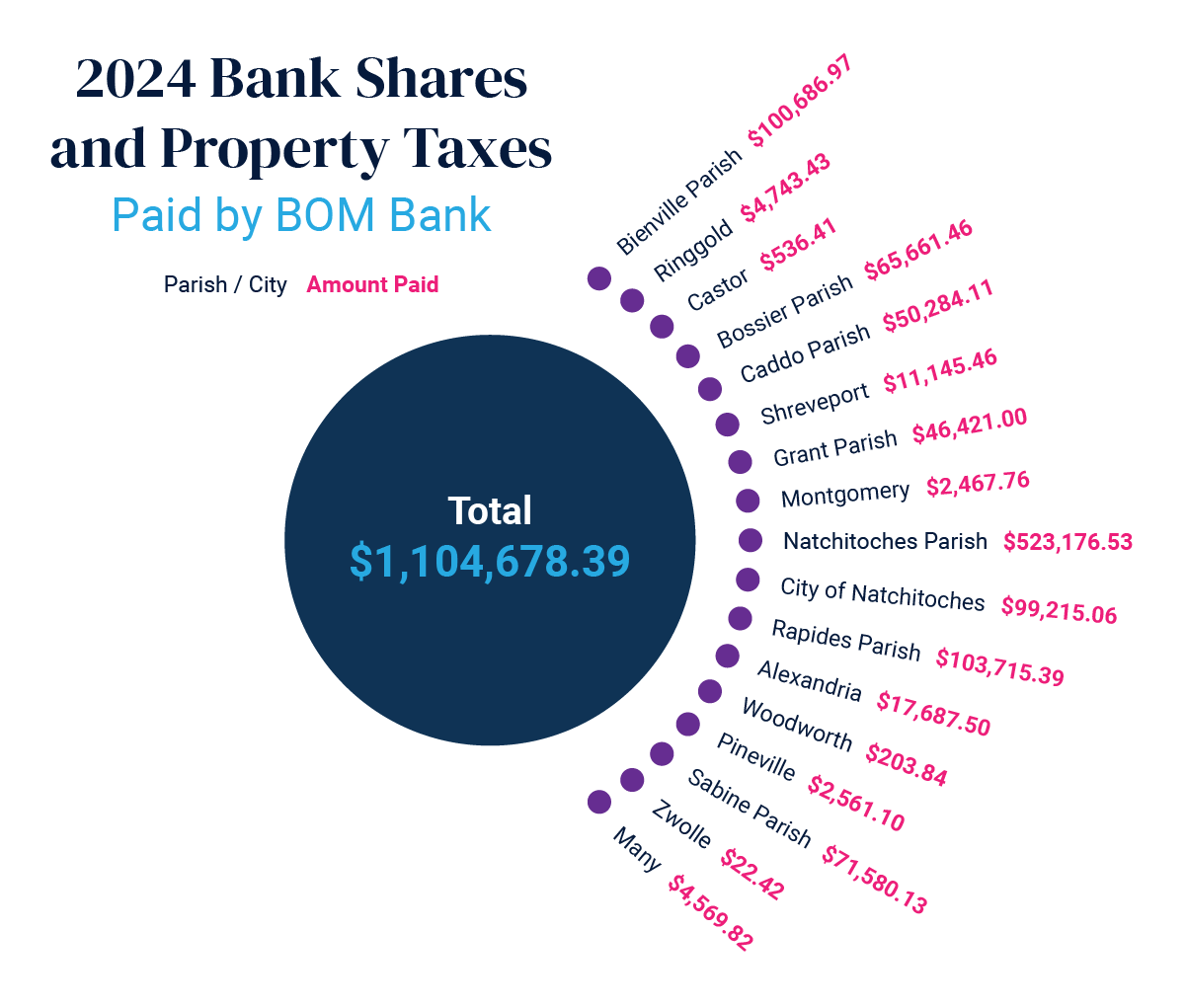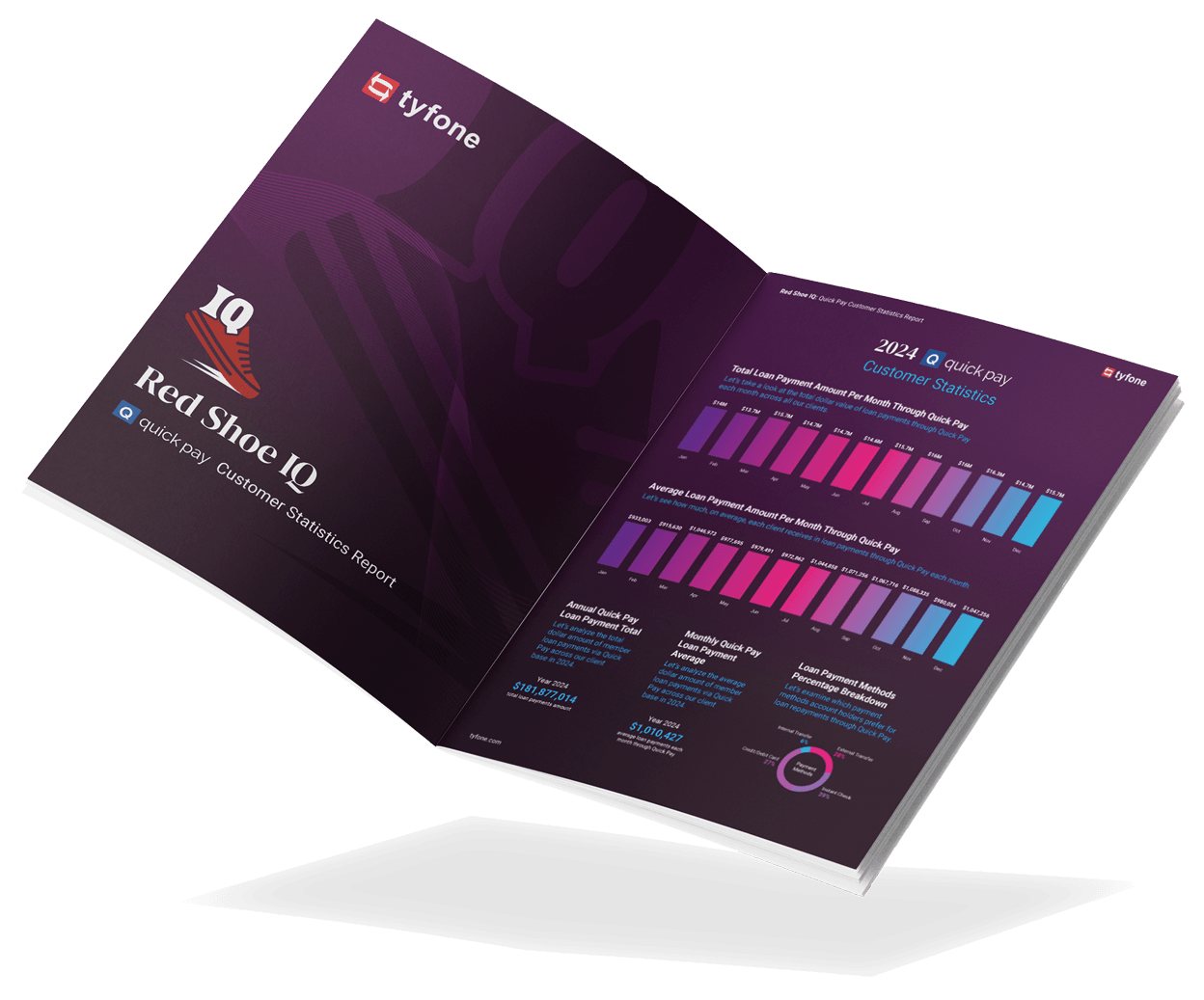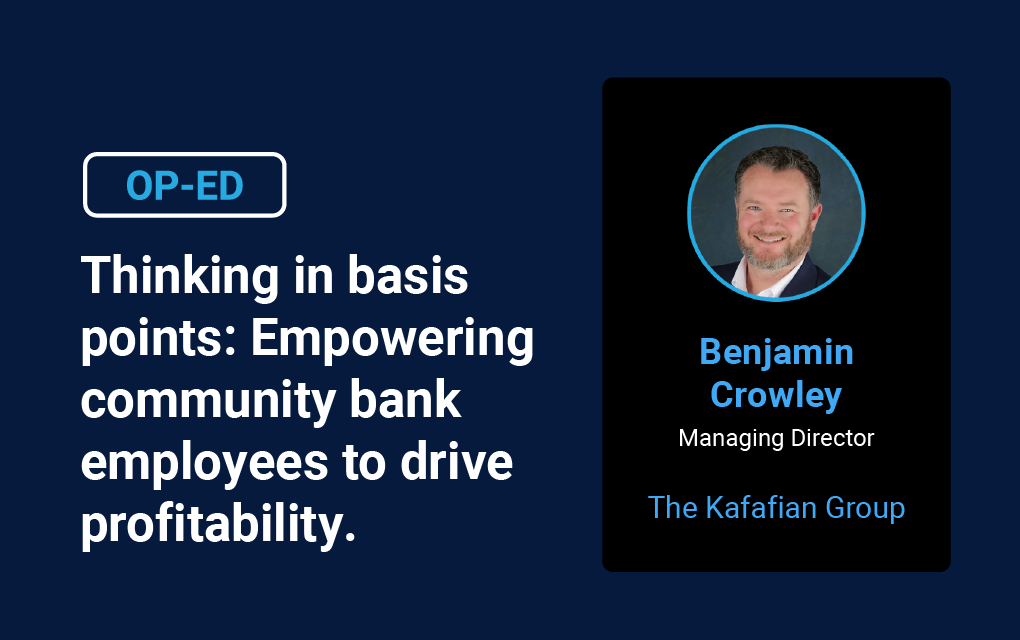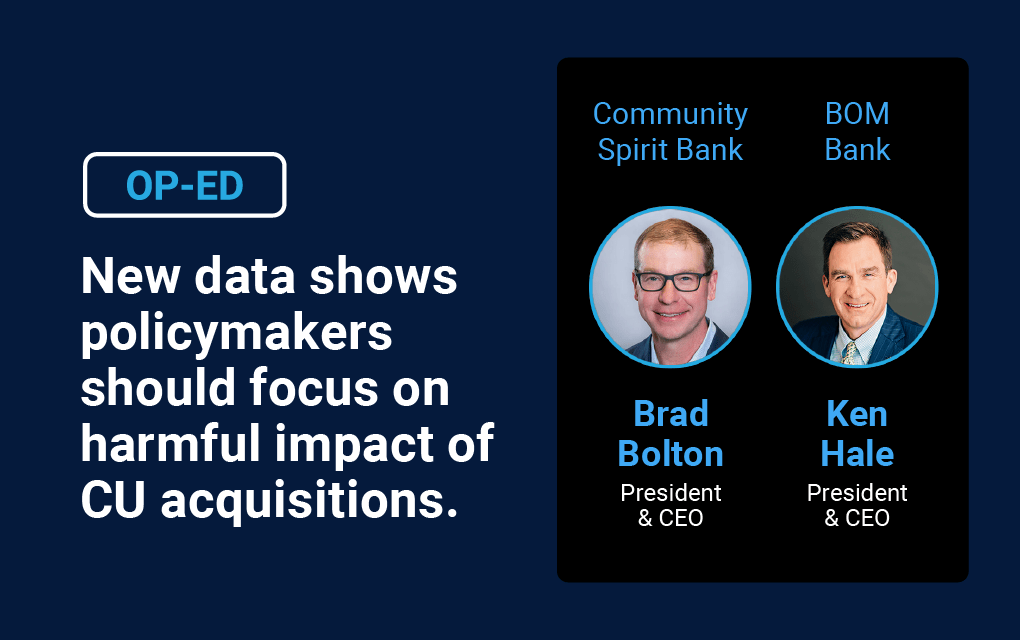The hidden cost of credit union-bank purchases
Louisiana is somewhat unique in the way banks are taxed.
In our state, both C-Corp and S-Corp banks are subject to a corporate tax, based on the bank’s capital and income, called the Bank Shares Tax. Under this system, banks in Louisiana pay taxes directly to the parishes, towns, and cities in which they operate. One hundred percent of the Bank Shares Tax remains local — supporting schools, fire departments, police forces, infrastructure, and other vital public services.
Since credit unions are exempt from the Bank Shares Tax, any time a credit union acquires a bank in Louisiana, the local taxes that were once collected via the Bank Shares Tax disappear. For many Louisiana municipalities, this tax loss can have devastating consequences.
My institution, BOM Bank, is headquartered in Natchitoches, LA, and holds approximately $1.4 billion in assets. We also maintain branches in several other towns, cities, and parishes across Central and Northwest Louisiana. Below are the actual Bank Shares Tax and property taxes BOM Bank paid in 2024. As you’ll see, these tax dollars stayed local, directly supporting the communities where our branches operate:

Story continued below…
Credit unions often argue that they pay payroll taxes, sales taxes, and in some cases, property taxes. However, every business — whether for-profit or not-for-profit — also pays payroll taxes. These support the Social Security Fund and the Unemployment Insurance Fund. In contrast, banks pay payroll taxes, sales taxes, property taxes, the Bank Shares Tax, and federal income taxes.
In Louisiana, credit unions can be taxed on their property, but this is entirely up to the discretion of each parish’s Tax Assessor. I encourage every reader to contact your local Tax Assessor and inquire: Are credit unions in your town, city, or parish paying property taxes? Or has your Tax Assessor decided to exempt them from these taxes?
In addition to the $1.1 million in local Bank Shares Taxes and property taxes paid in 2024, BOM Bank also paid approximately $4,050,000 in federal income taxes. As a reminder, credit unions do not pay federal income taxes. That brings our total tax contributions in 2024 to over $5,100,000, not including payroll and sales taxes.
Let me reiterate: if a credit union were to purchase a bank the size of BOM Bank, most (if not all of) the over $1.1 million in annual local tax revenue would vanish from the towns, cities, and parishes in which we operate — never to be collected again, as credit unions do not pay the Bank Shares Tax. So what typically happens when a municipality loses a major portion of its tax base?
- Essential services are often cut.
- Vulnerable residents — such as schoolchildren, the elderly, and low-income families — are the most affected.
- Municipalities may be forced to raise taxes on residents and businesses to make up the shortfall.
In conclusion,
The acquisition of Louisiana banks by credit unions isn’t just a business transaction — it’s a shift with long-lasting fiscal consequences for local governments and the communities they serve. The debate must extend beyond industry preferences and focus on the real cost to the public.
Established in 1903 in Montgomery, Louisiana, BOM Bank has grown from a local institution with $15,000 in capital to a community-focused bank with over $1.4 billion in assets, serving more than 32,500 customers across 26 branches in Louisiana and Texas.
Disclaimer
The views, opinions, and perspectives expressed in articles and other content published on this website are those of the respective authors and do NOT necessarily reflect the views or official policies of Tyfone and affiliates. While we strive to provide a platform for open dialogue and a range of perspectives, we do NOT endorse or subscribe to any specific viewpoints presented by individual contributors. Readers are encouraged to consider these viewpoints as personal opinions and conduct their own research when forming conclusions. We welcome a rich exchange of ideas and invite op-ed contributions that foster thoughtful discussion.










